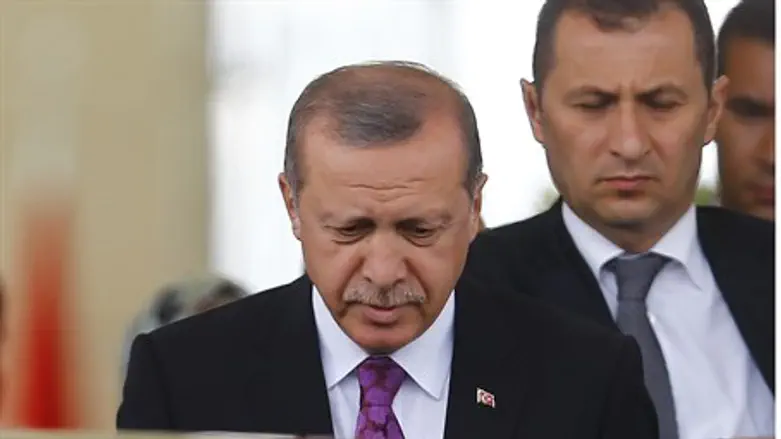
Turkish President Recep Tayyip Erdogan's Islamist AKP party received a heavy blow Monday, after learning it had lost its overall majority in Turkey's parliament after 13 years of undisputed - and increasingly autocratic - rule.
After his prime minister initially attempting to put on a brave face and hail the emerging results as a "victory," Erdogan himself appears to have opted for a different track: sulking.
According to Hurriyet Daily, as of Monday afternoon the notoriously publicity-hungry Erdogan has not appeared on TV for more than 24 hours. That may not sound like much, but given that Erdogan has appeared on TV sometimes as many as three times a day in the months leading up to the general elections it is a notably long absence.
Gleeful anti-AKP Turks have even created an online ticker counting the number of hours Erdogan has been absent from their TV screens.
Erdogan did finally issue a response to the election results Monday afternoon.
In a written statement posted on his presidential website, he said: "I believe that the current situation, which did not permit any party to form a government on its own, will be evaluated healthily and realistically by all parties that have taken part in the race," adding that the result and record voter turnout of 86% demonstrated Turkey's "determination for democracy and for reflecting its will at the ballot box."
46 million voters took part in the election to determine the makeup of Turkey's 550-seat parliament on Sunday.
The AKP party lost its majority on the back of growing corruption scandals, as well as alarm by many - particularly young, secular Turks and members of the country's Kurdish minority - over Erdogan's attempts to alter the constitution to give himself even greater powers. The AKP party would have needed a two-thirds majority to have enacted the sweeping changes Erdogan was seeking.
The Islamist party - modeled on the Arab Muslim Brotherhood - has also been fiercely criticized for promoting extremist Islam, including by arming jihadists in neighboring Syria.
It also comes as Turkey's previously strong economy has seen something of a decline since the previous elections in 2011.
Erdogan's party received just over 40% of the vote (258 seats), making it the single-largest party but no longer holding an overall majority.
Part of the reason for the election upset was the strong showing by the Kurdish HDP party, which passed the 10% voter threshold and secured 80 seats, with a little over 13% of the vote.
Being the largest single party, AKP's Prime Minister Ahmet Davutoglu still has 45 days to form a coalition government, but for now the other parties - bitter after more than a decade under an increasingly authoritarian AKP rule - are holding out. The HDP has already ruled out entering any coalition with the AKP.
As a result, the country is heading into a period of unusual political uncertainty - the Turkish lira fell to near-record lows against the dollar on Monday, and shares dropped by more than 8% soon after the Istanbul stock exchange opened, according to the BBC.